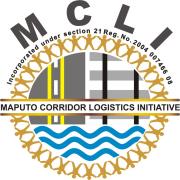 Mozambique National Training and Development Forum 2016
Session 1:
Session 2: Developing a Local Content Strategy
Session 3: Labour Law Fundamentals
For the Gas, Production, Mining, Infrastructure, Transport, Telecoms, Government, Energy, Hydro-Carbons, Petrochemicals Sectors, Manufacturing, and Service Industries
DELEGATE FEES
* Only companies with headquarters in Mozambique qualify for Local Pricing. Accommodation Reservations: We are pleased to offer our delegates a preferential accommodation rate at the Southern Sun, Maputo. Please contact: BALBINA CHIBOLECA and state that you are attending the African Influence Exchange event. Tel: +258 21 495 050 / Email: Balbina.Chiboleca@tsogosun.com Featured Downloads:
Mozambique Employment and Labour Law 2016 Labor Market Regulation in Mozambique
Booking Form:
|

Human capital strategies to catapult Mozambique into the region’s economic powerhouse Professor Tapio Varis, University of Tampere, Finland
 Professor Tapio VARIS is Professor Emeritus of Professional Education, with an emphasis on global learning environments, University of Tampere, Finland, and the UNESCO Chair in Global E-Learning. He is a Principal Research Associate at UNESCOUNEVOC International Centre for Technical and Vocational Education and Training, and a member of the Governing Board of the UNESCO Institute for Information Technologies in Education, the European Commission Media Literacy Expert Group. Prof. Varis has held various posts throughout his career, including Rector of the University for Peace (created by the UN) in Costa Rica; Chair of Media Studies in the University of Tampere, Finland; and Director of Tampere Peace Research Institute. Eva Meignen, Representative, Colleges and Institutes Canada
 With more than eight years of professional experience in Mozambique, Eva Meignen has acquired a solid base of knowledge about the economic and political context of the country and its main challenges and development priorities. Having worked closely with the Confederação das Associações Económicas (CTA) in Mozambique for several years, Eva has witnessed the impact of a lack of qualified labour on Mozambique’s economic development. Eva is currently leading the implementation of the Skills Training for Employment in Mozambique (STEM) Program. Eduardo Chimela, Labour Market Analysis – Mozambique
 Held posts at Ministerial level as Director for Studies and Cooperation and Director General at the National Institute for Employment and Vocational Training. Spearheaded amongst others, the drafting of the SADC Employment Protocol signed by the Heads of State and Government in Vic Falls, Zimbabwe in August 2014, the Decent Work Country Programme in 2011, and the country's Strategic employment policies such as the internship regulation, the labour market observatory research viewing its setting up; the national skills qualification framework for artisans. Dr Vasco Nhabinde, Director Local Content, Ministry Economy and Finance
 Vasco Correia Nhabinde is currently the Director of the National Directorate for Studies and Policy Analysis (DNEAP) within the Ministry of Planning and Development. Previously, he was the Head of Department and Executive Director of the Centre of Studies in Economics and Management at the Faculty of Economics of the Eduardo Mondlane University. Educated in Mozambique, he did his Master (2000) in Italy on Economics of Regulation and PhD (2007) in South Africa on Economics. He has been involved in several researches on retirement funds, Government consumption, etc. Maria Overeem, Team Leader, JOBA Mozambique
 Maria currently leads a team to implement JOBA, the DfID funded skills for employment initiative in Mozambique that supports the training market operations of the non-state training providers in Mozambique, for the benefit of disadvantaged youth and women. The aim is also to form an Association of non-state training providers for peer support, QA and professional development. |





